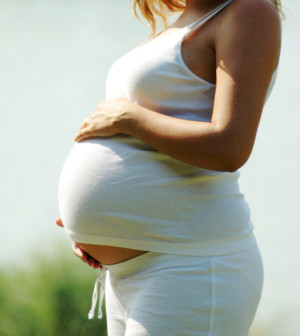- Gelatin vs. Collagen: Which is Best for Skin, Nails, and Joints?
- The Long-Term Effects of Daily Turmeric Supplements on Liver Health
- Could Your Grocery Store Meat Be Causing Recurring UTIs?
- Are You Making This Expensive Thermostat Error This Winter?
- Recognizing the Signs of Hypothyroidism
- 10 Strategies to Overcome Insomnia
- Could Artificial Sweeteners Be Aging the Brain Faster?
- Techniques for Soothing Your Nervous System
- Does the Water in Your House Smell Funny? Here’s Why
- Can a Daily Dose of Apple Cider Vinegar Actually Aid Weight Loss?
Placenta Test Measures Babies’ Exposure to Arsenic


A pregnant woman’s placenta can reliably measure exposure to the toxic metal arsenic in both the mother and her unborn baby, new research finds.
“Our findings show placental arsenic concentrations reflect both maternal and fetal biomarker concentrations,” said the study’s lead author, Tracy Punshon, a research assistant professor of biological sciences at Dartmouth College in Hanover, N.H.
Arsenic, a carcinogen, occurs naturally in soil, water and air. Previous research has shown that it crosses the placenta and may affect fetal development, according to background notes with the study. Contaminated well water is one source of arsenic exposure.
For this study, researchers compared arsenic concentrations detected in placental samples of 652 women with urine samples taken during pregnancy and post-delivery toenail clippings from mother and child. They also analyzed the link between placental arsenic and the women’s exposure to the metal from eating rice and drinking private well water.
The study, published recently in the Journal of Exposure Science and Environmental Epidemiology, revealed that placenta arsenic concentrations correlated with the arsenic levels detected in the women’s urine as well as their toenails and the infants’ toenail clippings.
Also, greater placental transfer of arsenic from mother to fetus was observed at high placental arsenic concentrations, the researchers said.
The findings “support placenta as a potentially useful biomarker of arsenic exposure, particularly in studies of placental function. They suggest greater maternal-fetal transfer when placental arsenic is high,” Punshon said in a university news release.
Scientists have previously used placenta to assess infants’ early exposure to other toxic metals, including lead, mercury and cadmium, the researchers added in the news release.
More information
The American Cancer Society has more about arsenic.
Source: HealthDay
Copyright © 2026 HealthDay. All rights reserved.










